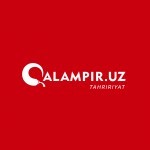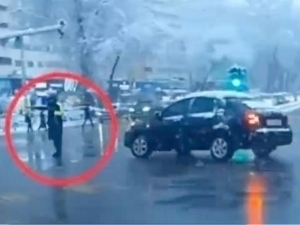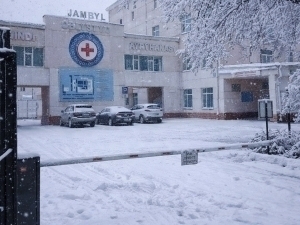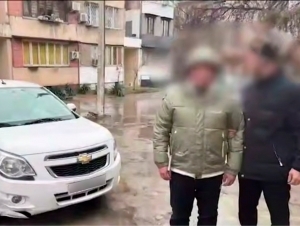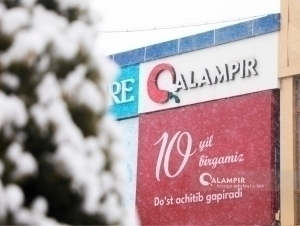Weekly analysis: They bit the ground when they fell
Review
−
30 November 2024 10073 12 minutes
You may have heard: a man was killed in Kokand. If he touched a man or woman lying on the ground, screaming and crying, the already sick would flee in fear. Every clinic in Tashkent seemed to be involved in the case. Patients on the brink of death were placed in ambulances and transported to Kokand under the pretense that they were seeking treatment in Tashkent. If this is true, why was the license plate covered up? Was that part of the plan? Let’s face it: we berate doctors, curse at them, and yet wander helplessly to their doors when we need help.
Officials Removed Following the Assassination Attempt on Allamjonov
The case involving the assassination attempt on Komil Allamjonov, a former official in Uzbekistan's Presidential Administration, is intensifying by the day. Over the past week, discussions about Allamjonov and the dismissal or arrest of officials tied to the case have dominated public discourse.
Nearly a month after the attempt, Uzbek citizen Javlon Yunusov, suspected of involvement, was arrested in South Korea. The Prosecutor General's Office of Uzbekistan issued an official statement confirming the arrest. However, no Uzbek law enforcement agency has yet disclosed that Yunusov was on a wanted list. Details about how he was detained and through which channels remain unclear.
According to the Prosecutor General’s Office, evidence was discovered during searches of the crime scene, vehicles used by the suspects, and their residences. Seven individuals were identified as being involved in the crime. Five were detained, while two were wanted. Yunusov was extradited from Korea to Uzbekistan, while another suspect, found in Kazakhstan, is undergoing investigative procedures. The Prosecutor General’s Office has yet to comment on the extradition process for the second suspect.
Significant political changes followed these events. Lieutenant General Abdusalom Azizov, head of the State Security Service since 2019, was relieved of his post and reassigned to the Security Council under the President. He was succeeded by Bakhodir Kurbanov, who had been appointed Minister of Defense just two days earlier. Shukhrat Kholmukhammedov, previously the First Deputy Minister and Chief of the General Staff, was named the new Minister of Defense.
Several other officials were also dismissed, including Colonel Ahrorjon Atxamov, Head of the Criminal Investigation Service, and Colonel Doniyor Toshkhodjayev, First Deputy Head of the Tashkent City Internal Affairs Department. Additionally, Colonel Alijon Ashurov, Head of the Internal Security Department of the State Security Service, and his brother Sarvar Ashurov, an Assistant to the Prime Minister, were removed from their posts.
Neither Allamjonov nor the Presidential Administration has commented on the attempt on his life. The Prosecutor General’s Office has referred to the case as "the Kibray incident." This week marked the first time Allamjonov’s name was officially mentioned in connection with the investigation.
Three Uzbeks Charged in Rabbi’s Murder
On November 24, Rabbi Svi Kogan, a prominent member of the Chabad-Lubavitch movement and a global Jewish evangelist, was found murdered in the United Arab Emirates. Shortly after, three Uzbek citizens were charged in connection with his death.
Kogan was reported missing on November 21, and his body was discovered three days later. On November 25, more details surrounding his mysterious death emerged. The case sparked significant attention on Uzbek social media after The Times of Israel initially reported that Uzbek nationals were suspects. UAE police arrested three Uzbeks: 28-year-old Olim Tohirovich and Mahmud Abdulrahim, along with 33-year-old Azizbek Komilovich.
Israeli officials have described the incident as an act of terrorism. The Chabad-Lubavitch movement issued a statement on X condemning the suspects as "terrorists." Israeli Prime Minister Benjamin Netanyahu vowed that Tel Aviv would take all necessary steps to bring the perpetrators to justice.
According to Israeli sources, the suspects attacked Kogan with intent to kill, allegedly under Iranian orders. The group reportedly planned to flee to Turkey following the crime.
Meanwhile, the Consulate General of Uzbekistan in Dubai has stated that it remains in close contact with UAE authorities and relevant departments to clarify the case. Efforts are ongoing to ascertain further details about the incident.
The Verdicts for Two Gruesome Murder Cases Announced
This past week, courts in Uzbekistan announced verdicts in two horrific murder cases that shocked the nation in July. One involved the brutal killing of a 3-year-old child, and the other, the mass murder of five family members.
On November 29, the Mirzo Ulugbek District Court for Criminal Cases delivered its judgment in the case of Sohibjon Muqimov, accused of murdering a 3-year-old child by stabbing the child in the eye.
Despite the prosecution's request for a life sentence, the court found Muqimov guilty under multiple provisions of the Criminal Code, including Article 97, Part 2, Subparagraphs "v" and "j," and others. He was sentenced to 24 years of imprisonment under Article 59 of the Criminal Code.
Of this sentence, the first four years will be served in prison, with the remainder in a strict-regime colony, as stipulated in Article 50, Part 9 of the Criminal Code.
The court informed the parties of their right to appeal the decision to the Tashkent City Court. Muqimov's father has already expressed his intention to appeal the verdict.
The Tashkent Regional Court also concluded the closed trial of a man who killed five members of a family in Yangiyul and set their home ablaze.
The defendant, born in 1995 in the Namangan region, was found guilty of multiple crimes under the Criminal Code, including Article 97, Part 2, Subparagraphs "a," "v," "j," "z," and "i." He was sentenced to life imprisonment, to be served in a special-regime colony.
The victims included a couple, their two young children, and a niece. Their bodies, showing signs of severe injuries, were discovered in the burned remains of their home. Investigations revealed that the 29-year-old perpetrator, a relative of the victims, committed the crime over a financial dispute.
Verdict Delivered in the Death of Blogger Farhod Mannopov
More than a year and a half after the tragic death of blogger Farhod Mannopov, also known as "Mittivine," at a private clinic in Tashkent, a court has issued its verdict.
On November 29, the Uchtepa District Criminal Court concluded the trial of two medical professionals from the "Star Med Center" clinic. An otolaryngologist, born in 1981, and an anesthesiologist-resuscitator, born in 1979, were accused of negligence in connection with Mannopov’s death during a nasal surgery in March last year.
The court acquitted both defendants of charges under Article 117, Part 2 (exposing another to danger). However, they were found guilty under Article 116, Part 3 (failure to perform professional duties properly) and sentenced to five years of restricted liberty. They were also barred from practicing as otolaryngologists and anesthesiologists for two years under Article 45 (deprivation of a certain right).
Additionally, the anesthesiologist-resuscitator’s sentence includes 3 years, 6 months, and 27 days of restricted liberty. The court cited Article 62 (rules for calculating detention time) in its decision.
Despite the verdict, the otolaryngologist, Alijon Hisonov, expressed dissatisfaction. He argued that complications leading to Mannopov’s death occur in only 1 out of 60,000 cases and maintained that the exact cause of death remains undetermined, even after he has performed over 7,000 surgeries.
Uzbekistan to Intensify Efforts to Apprehend Fugitives Hiding in Turkey
The Consulate General of Uzbekistan in Istanbul has announced that efforts to apprehend individuals wanted in Uzbekistan and hiding in Turkey will be further intensified.
In recent years, there has been a noticeable increase in cases of individuals fleeing investigation and prosecution in Uzbekistan and attempting to evade justice by seeking refuge in Turkey.
Within the framework of mutual legal assistance between the Ministries of Internal Affairs of Turkey and Uzbekistan, collaboration on criminal prosecutions has become more effective.
In the first 10 months of 2024 alone, 37 individuals who had been evading justice in Turkey for years were apprehended and brought to trial.
“Moving forward, measures to capture wanted individuals will be strengthened further. The relentless fight against crime will continue vigorously, ensuring strict adherence to the principle of criminal liability. For those evading justice, the only correct course of action is to contact Uzbekistan's diplomatic missions abroad or local law enforcement agencies to exercise their right to legal protection during investigations and trials,” the Consulate General stated.
Several significant arrests underscore the effectiveness of these intensified measures:
Robert Vladimirovich Babayans, 38, who had been wanted in Uzbekistan since 2021 on charges of multiple fraud offenses causing substantial harm to citizens, was recently apprehended in Turkey. He has been deported to Tashkent to face trial.
Tursuntash Kadirova, 44, who had been evading prosecution for eight years on human trafficking charges, was also arrested in Turkey this week and subsequently extradited to Uzbekistan.
Erkinjon Turdimov Steps Down as Samarkand Governor
This past week, Uzbeks witnessed a notable resignation in the political arena. Erkinjon Turdimov, who had served as governor of the Samarkand region since 2018, officially stepped down from his position.
While the official reason cited for his departure was a transfer to another role, speculation on social media suggests health concerns might have contributed to his decision.
Manuchehr Mirzayev, Turdimov's press secretary, addressed these rumors, telling QALAMPIR.UZ:
"Yes, everyone is aware of his health issues. He undergoes annual treatment for 1-1.5 months. However, this has never hindered him from fulfilling his duties as governor."
Proposed Ban on Fuel Exports in Kazakhstan to Address Shortages
With winter approaching, Uzbekistan is once again experiencing long queues at gas stations, a seasonal issue that highlights shortages in fuel supplies. Neighboring Kazakhstan is considering measures to address its fuel challenges, which may also impact regional dynamics.
Kazakhstan's Ministry of Energy has drafted amendments to impose a six-month ban on the export of gasoline, diesel fuel, and related petroleum products outside the Eurasian Economic Union (EAEU), effective January 1, 2025.
The ministry explained that an unusual spike in the domestic consumption of AI-92 gasoline and diesel fuel has depleted reserves. The export ban aims to address these shortages by maximizing refinery capacity and curbing the re-export of imported fuels.
Israel and Lebanon Agree to Ceasefire
After months of escalating violence between Israel and Lebanon, a ceasefire agreement was reached, brokered by U.S. President Joe Biden and French President Emmanuel Macron. The 13-point agreement, effective from 4:00 a.m. on November 27, seeks to end hostilities and restore stability in the region.
Under the agreement:
The Lebanese government will prevent Hezbollah and other armed groups from launching attacks on Israel.
Israel will cease military actions against Lebanon's civilian, military, and governmental facilities.
Israeli forces will withdraw from Lebanese territory within 60 days.
Hezbollah will retreat to positions at least 30 kilometers from the Israeli border.
Despite the ceasefire, both nations retain the right to self-defense under international law. Israeli Prime Minister Benjamin Netanyahu emphasized that Israel would act against any threats to its security and closely monitor Hezbollah’s activities near the border.
The agreement marks the end of a 14-month-long occupation, but early violations have raised concerns about its sustainability. On November 27 and 28, the Lebanese military reported Israeli airspace violations and attacks. Israel's military claimed these actions targeted a Hezbollah missile depot identified as part of a “terrorist operation.”
The ceasefire also comes amid mounting legal pressure on Israel's leadership. The International Criminal Court (ICC) issued arrest warrants for Netanyahu and former Defense Minister Yoav Galant for alleged war crimes in Palestinian territories. Although France, as a signatory to the Rome Statute, is technically obligated to enforce the ICC ruling, it has refused to arrest Israeli officials, citing diplomatic immunity. Reports suggest that immunity assurances were part of the negotiations leading to the ceasefire agreement.
Vladimir Putin Visits Astana for High-Level Talks
On November 27, Russian President Vladimir Putin arrived in Astana, Kazakhstan, on a state visit. He was greeted with a formal ceremony by Kazakh President Kassym-Jomart Tokayev at the airport. The welcome included children waving the flags of both nations, symbolizing the friendship between Kazakhstan and Russia, and artist Asel Sabirzhangkyzy presenting a painting to both leaders. Despite Putin’s controversial status due to an International Criminal Court (ICC) arrest warrant, which makes him subject to potential arrest in over 100 countries, Kazakhstan extended a dignified reception during his visit. While the visit was underway, an unexpected incident occurred on one of Astana’s LED screens. An image of the Ukrainian flag briefly replaced the Russian national flag on a screen near the Astana Opera Theater. This coincided with discussions between Putin and Tokayev, drawing significant public attention.
Kazakhstan’s Ministry of Internal Affairs launched an investigation into the event, probing technical malfunctions and the possibility of external interference. The LED screens are owned by Keruen Media LLC, and authorities are exploring all potential causes. During his visit, Putin and Tokayev addressed key issues in bilateral relations, particularly in energy cooperation. At a joint press conference, Putin highlighted the steady development of energy ties between Russia, Kazakhstan, and Uzbekistan.
“Energy cooperation is progressing systematically. Russian oil is being transported to China via Kazakhstan, and Gazprom ensures uninterrupted gas supplies to Kazakh consumers. Since last year, Russian gas has also been transported to Uzbekistan via Kazakhstan, and we intend to increase these supplies further,” Putin stated.
